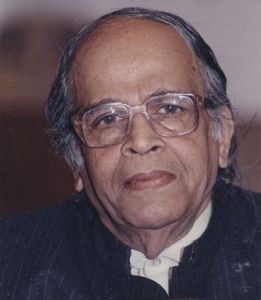Jay Dubashi is not remembered publicly by the BJP in the 21st century. But, in the 1980s and 1990s, the right-wing economist would begin his day early in the party’s national headquarters, spending several hours poring over economic data and policies of the governments of Indira Gandhi, Rajiv Gandhi, V.P. Singh and P.V. Narasimha Rao, and giving his own alternative policy options to Atal Bihari Vajpayee, L.K Advani and other BJP leaders of the day.
As convener of the party’s economic cell, the scholar from London School of Economics would hold sway on the need for righting the leftist policies of Congress governments. He had strong praise for the reforms of Rao and Manmohan Singh, and was thrilled that the throttled entrepreneurial spirit was being unleashed and controls were being dismantled.
Dubashi was also a key member of the party’s manifesto committee, writing the alternative agenda of reducing government monopolies, eliminating bureaucratic controls and allowing more private sector participation.
Many young office-bearers would attend the sessions of the “professor”, among whom were Arun Jaitley, M. Venkaiah Naidu, K.N. Govindacharya, and, importantly, Narendra Modi, who was secretary and later general secretary in-charge of the organisation.
Dubashi, along with industrialist Viren Shah, who was party treasurer, would argue how self-reliance cannot be achieved by the government commanding the heights of the economy and how the country needed a people’s economy. Dubashi took on the phalanx of pro-socialist economists of the Congress and leftist persuasions in debates, even as he told BJP leaders to refrain from imitating the Congress in their quest for power.
By the turn of the century, though Dubashi gave inputs to the national agenda of governance of the NDA, he was disillusioned that the coalition government was status quoist, where barring finance, commerce and industry, all other economic portfolios were given away to coalition partners who resisted reforms.
But now the Dubashi agenda is getting implemented with significant modifications and caveats, since the economic crisis of 2019 and the pandemic which began last year. Dubashi, who was unimpressed by the land reforms of the Congress and the left parties, had argued that farm holdings need to be consolidated and corporatised, so that a number of people were weaned away from agriculture dependence.
The three farm laws brought by the Central government last year in the teeth of opposition by farmers organisations in north India and by the opposition would be a beginning of what Dubashi had given in his blueprints. He had emphasised the need for huge investments in manufacturing and infrastructure through foreign sources and the private sector. Modi’s two Make in India programs, as well as the rush to sell or consolidate the sprawling public enterprises, including those in the strategic sectors like defence and space, had their origin in the thinking done under Dubashi’s charge decades ago.
Two decades ago, in a media interview, Dubashi had asked where would the 06 lakh crore funds meant for manufacturing come from, as he felt disinvestment of government would not be enough. Coincidentally, the National Asset Monetisation Pipeline announced by Finance Minister Nirmala Sitharaman would lease out “brownfield” assets of the government in multiple sectors to the private sector to realise exactly Rs6 lakh crore!
The opposition is crying hoarse that the assets would go to crony capitalists. The BJP leaders are giving credit to Modi. But Dubashi, the original prophet of rightist change, will not get credit or discredit for this fundamental economic change.


